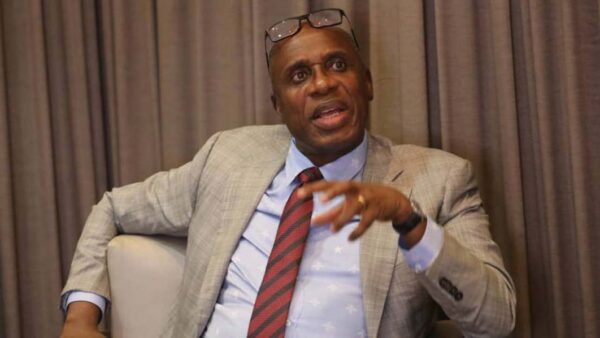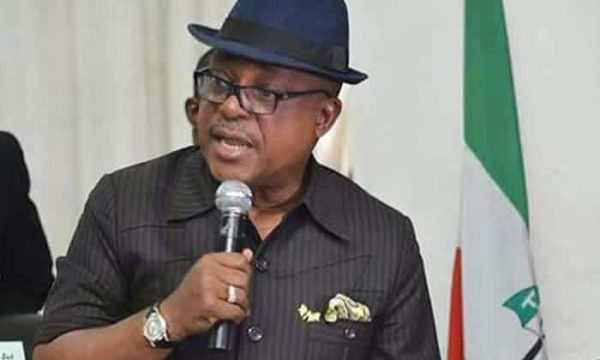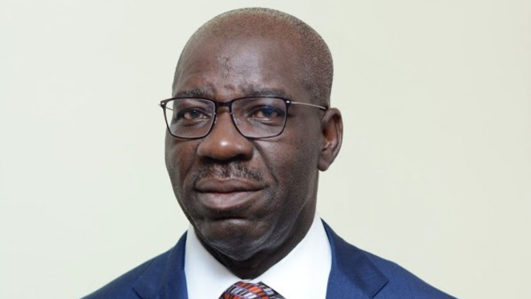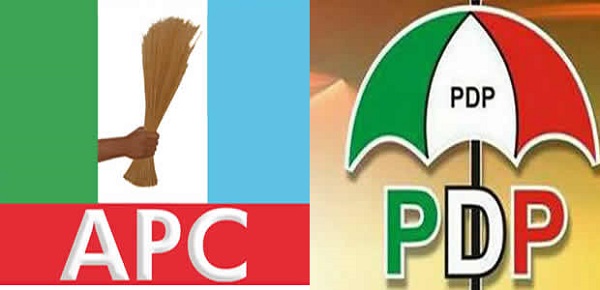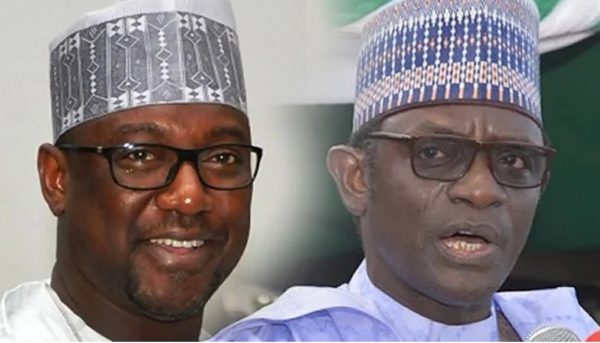Overtures to Atiku, Saraki, others expose APC’s existential dilemma

Whether it was made in jest or earnest, the call by governing All Progressives Congress (APC) on some of its former leaders to return to the party comes as part of the immediate challenges the party is confronting. Although the party’s roll was increased by the re-entry of former Speaker of the House of Representatives, Hon. Yakubu Dogara and former Chairman of Peoples Democratic Party (PDP), Senator Barnabas Gemade, the development has not solved the major existential challenge of the governing party.
Observers have noted that the early movement across party lines by Dogara and Gemade was informed by isolated personal political designs of the two leaders, rather than a sign of APC’s display of internal stability, excellent performance, and leadership. Come 2023, APC’s electoral mascot, President Muhammadu Buhari, would not be on the ballot unless an unforeseen major constitutional upheaval happens.
Speaking during APC’s NEC last March, President Buhari pleaded with party chieftains to eschew internal bickering and individual quest for political ascendancy so as to ensure the party does not become history at his exit from office. Also, in his lengthy letter titled, ‘Becoming the Party We Intended to be,’ one of APC’s national leaders, Asiwaju Bola Tinubu, observed that despite two straight presidential electoral victories for President Buhari, the party was yet to exemplify cohesion.
Tinubu had stated: “We must acknowledge that something important has gone off track. For some months, we have experienced growing disagreement within the leadership of the party. This unfortunate competition had grown so intense as to impair the performance of the NWC, thus undermining the internal cohesion and discipline vital to success.”
Perhaps in recognition of the foggy clouds in the party’s horizon and immediately after their inauguration, the APC Caretaker and Extraordinary National Convention Planning Committee (CENCPC), led by the Yobe State Governor, Mai Mala Buni, visited Tinubu. The CENCPC secretary, Senator John Akpan Udoedehe, explained that the visit to Tinubu was part of the national consultations in the committee’s effort to make the party what it was intended to be.
But the reality on ground is that after the Lagos visit, the caretaker committee is not known to have paid similar visit to any other chieftain, thereby feeding the impression that apart from Buhari and Tinubu, APC can hardly boast of any other stakeholder of influence.
Futile invite for Atiku, Saraki and company
IT was therefore against that nervous background that Nigerians woke up to the surprise invitation by APC’s Deputy National Publicity Secretary, Yekini Nabena, asking former Vice President, Atiku Abubakar, former Senate President, Dr. Bukola Saraki, and former speaker of the House of Representatives and governor of Sokoto State, Waziri Tambuwal to return to the party in the spirit of reconciliation.
Although some critics dismissed the call as a curious joke by APC based on the plethora of unresolved crises arising from the 2018 congresses and governorship primaries in most state chapters, commentators on Nabena’s statement exposed the yawning gap in the party as it marches towards 2023.
It could be recalled also that Tinubu had, at a chance meeting with Atiku in Minna, Niger State, dangled the idea of a possible return to APC. The current disputations about zoning in the governing party show that the invitation to these opposition leaders was mere shadow-chasing.
The APC deputy national publicity secretary had explained that Dogara and Gemade’s return “attests to the fact that the ongoing effort by the Governor Mai Mala Buni-led caretaker committee to reconcile aggrieved members and strengthen the party is yielding the desired dividends.
“We assure all true progressives, who left the party over whatever grievance, to return and join ongoing efforts to reposition the APC and further achieve our pro-people plans for the country.”
But Benue State chairman of PDP, Mr. John Ngbede, denied that Gemade was a member of PDP in the state, stressing that the party does not feel threatened by his political foray. Ngbede explained that PDP remains well-rooted in Benue State, stressing that Gemade strolled into PDP in anticipation of partaking in a senatorial primary, but veered off to the Social Democratic Party (SDP), when he found out that PDP was too competitive for his comfort.
On suggestions by some party faithful that Gemade’s defection to APC was part of the gang up against Governor Samuel Ortom and PDP, Ngbede said people, who were in search of relevance could not threaten anybody as their gang up would always fail.
Despite Ngbede’s observations, the state chairman of APC, Abba Yaro, said Gemade’s return would boost the chances of the party in the state, stressing that the party has set up a committee to look at the reasons it failed in the last elections. Denying the possibility of renewed supremacy contests between Senator George Akume and Gemade in Benue APC, Yaro noted that upon his return, Gemade publicly acknowledged that Akume remains the political leader of the party in the state.
In the case of Dogara, recent developments showed that he parted ways with PDP over some irreconcilable differences with Governor Bala Mohammed, who insists that there should be only one governor in the state. While Dogara regretted that the lack of ideological framework in PDP made it impossible for the party to call Governor Mohammed to order, his constituents maintain his journey to APC was entirely self-serving.
End of defections
PERHAPS, the most intriguing aspect of Nabena’s statement is the claim that “the APC caretaker committee, led by Governor Buni, has created a conducive and sincere environment to address many of the grievances among our party’s ranks and return the party to its progressive and lofty heights.”
For instance, the issue of how to zone the chairmanship position vis-à-vis the contemplation of where the presidential standard bearer in 2023 should come from is currently enervating the committee. Consequently, could Atiku, Saraki, Tambuwal or Senator Rabiu Kwankwaso’s return to APC be the magic wand to solve those puzzles, without creating fresh recriminations, especially against the background of issues that precipitated their exit in the first instance?
The mere fact that neither APC nor PDP could present an ideal political party founded on ideological framework and strong leadership, as well as the response from those being invited by the governing party show the likelihood of imminent end to movement across party lines. If each of the big parties commit to internal repairs and regeneration, the search for fruitful democratic governance that translates to good governance would be in sight.
That could explain Atiku’s response when he stated through his Special Adviser on Media, Mazi Paul Ibe, that he would not return to a sinking ship, stressing that “all these shenanigans are to distract Nigerians from the monumental failures at governance…”
While equating a return to APC to “willingly opting to go to hell,” Atiku noted that APC’s leadership in the past five years does not win it admirers.
Apart from the statement by APC’s deputy national publicity secretary, there is no concrete evidence that the party was serious about winning back the membership of Atiku, Saraki, Tambuwal and Kwankwaso. A member of Kwankwasiyya Movement and aide to Senator Kwankwaso, Aminu Abdusalaam, described APC as a party at the threshold of imminent disintegration, stressing that the leaders know better than to consult his principal for a return.
The forthcoming governorship election in Edo and Ondo States would go a long way to exposing the stature of the two major political parties, especially against the background of the strong divisions within the parties by the forces contending for the 2023 presidency.
To a large extent, the June 27, 2020 letter by Tinubu shows that the challenges facing Nigeria’s governing political party go beyond search for prominent names for electoral purposes. While remarking that predictions of APC’s imminent demise are premature, Tinubu had stated: “An honest person must admit the party had entered a space where it had no good reason to be… A political party that has lost sight of the reason for its existence becomes but the vehicle of blind and clashing ambitions.
“Many members have lost their balance; their personal ambition apparently came to greatly outweigh the obvious national imperatives. For the average man, watching politicians wrestle for position is a poor substitute to seeing politicians working for the benefit of all. Yet, such intramural fighting has come to occupy the attention of many high ranking party officials and members.”
It is obvious that the options open to APC, which its deputy national publicity secretary failed to note, are either to continue in membership recycling or map out new strategies for a better future of sustainable growth. That is a big dilemma.



